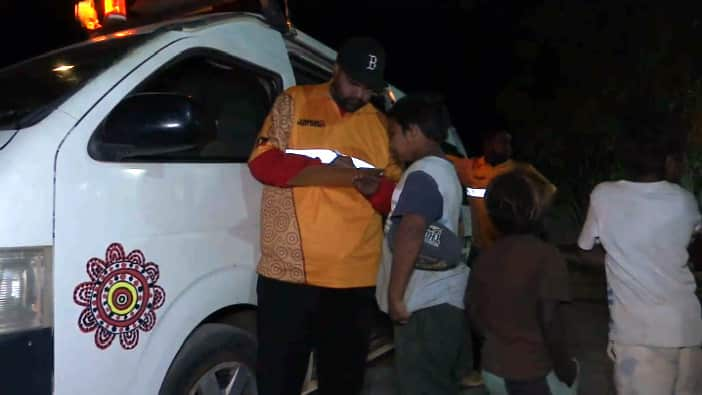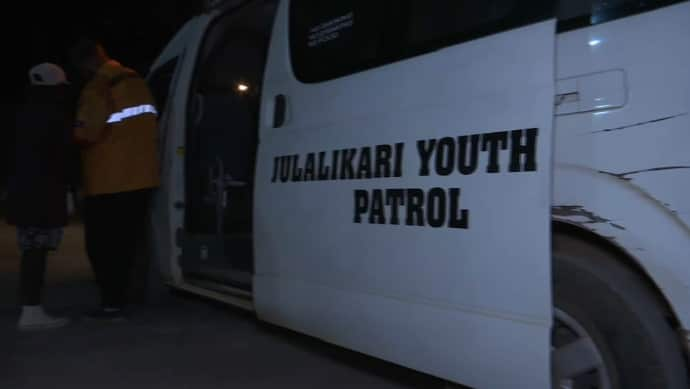Saturday night is the busiest for Tennant Creek’s youth patrol.
From 6pm until 2am, the small bus and dedicated workers offer a safe journey home for the children, most of whom are Indigenous.
As many as 30 children a night use the service, waiting at the youth centre for a lift home. At the brightly-lit centre, they may get their only food for the night.

They line up for the bus like it’s a trip to school. Some board without shoes or shirts.
At about 9pm, the bus drives past a street brawl with at least 20 people fighting, watching or trying to break it up.
A child is dropped off at the end of his street, told to go home and not walk towards the fight. The youth workers know better than to get involved, they simply use walkie-talkies to contact police directly.
“At the end of the day, you've got parents and families who have not been doing the right thing by their kids, who have abused their children, who neglected their children,” Prime Minister Malcolm Turnbull said after joining the youth patrol and spending the night in the Northern Territory's Tennant Creek.
“We've got to focus on each child; there are no excuses any longer.”
A harsh spotlight has been cast on the town since the alleged sexual assault of a toddler in February.

A newly-formed cultural authority group says tough action needs to be taken against people causing "trouble".
One of the ideas being canvassed includes the power to banish them from town, a form of tribal law.
“Someone that’s causing trouble in the community, they [the advisory group] send them away to their homelands or elsewhere,” group member and elder Ronald Plummer said.
“It’s mainly where their families are so that way they can talk to that person and say: ‘you can’t be doing this’. But we’re looking at that process and hopefully we can reinforce that with the police.”
NITV NEWS: Can fly-in, fly-out ministerial visits help Tennant Creek?
Another community leader, and chairwoman of Julalikari Council Aboriginal Corporation, Linda Turner, said the town hit ‘rock bottom’ after the alleged February incident.
“There’s a mood of determination amongst Aboriginal leaders and traditional owners,” she said.
“It’s unacceptable that people come in and ignore Aboriginal protocols such as respect for country and how you act on other people’s country.”

But locals in the historic gold mining town say prevention, rather than punishment, is the way forward.
The most urgent issue, locals told the prime minister again and again, is to address overcrowded homes.
“You got 15 people [in a house],” Mr Plummer told SBS News.
“You can’t get kids to school when you got so many people in a house. The housing issues needs to be addressed first because you can’t talk about jobs, talk about policing, when you got overcrowded houses.”
Mr Turnbull’s listening tour of Tennant Creek was brief, less than 24 hours. But, at its conclusion, he flagged several ideas that could fundamentally change Tennant Creek.
The government, after requests from some locals, is actively considering trialling the controversial cashless welfare scheme in Tennant Creek.
Mr Turnbull also said improved kinship care services are a priority in the community.
Most importantly, the prime minster said Tennant Creek, and the Barkly region, could be brought into the government’s Cities Deals policy.
Like any Northern Territory town, there is a complex interplay of local, Territory and federal government, service providers, and policing to help Indigenous people.
The Regional Deal, as Malcolm Turnbull labelled it, would improve coordination to address the town’s dysfunction.
“They'll have the same objectives, everyone has got good intentions, but without coordination you can be like ships passing in the night,” he said.
As the town resumes its normal pace after the departure of the Prime Minister, entourage and travelling media, the work begins on translating those “good intentions” into action.

